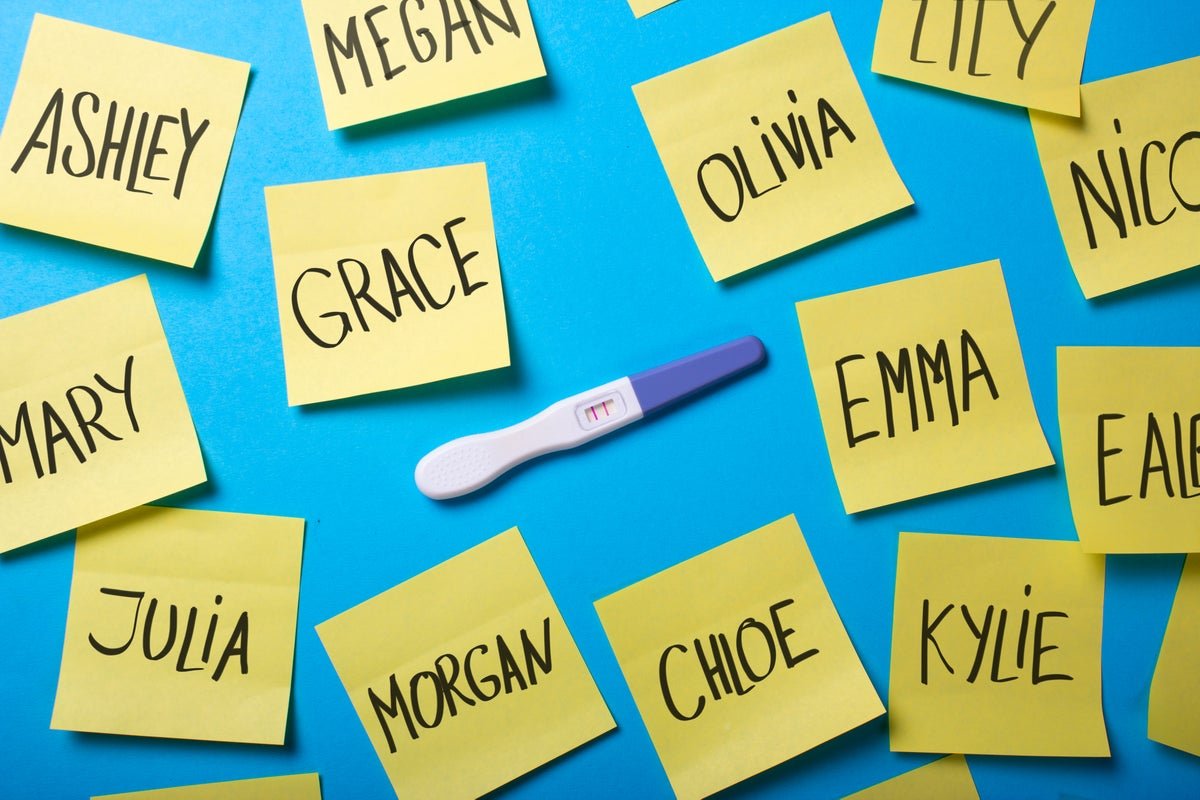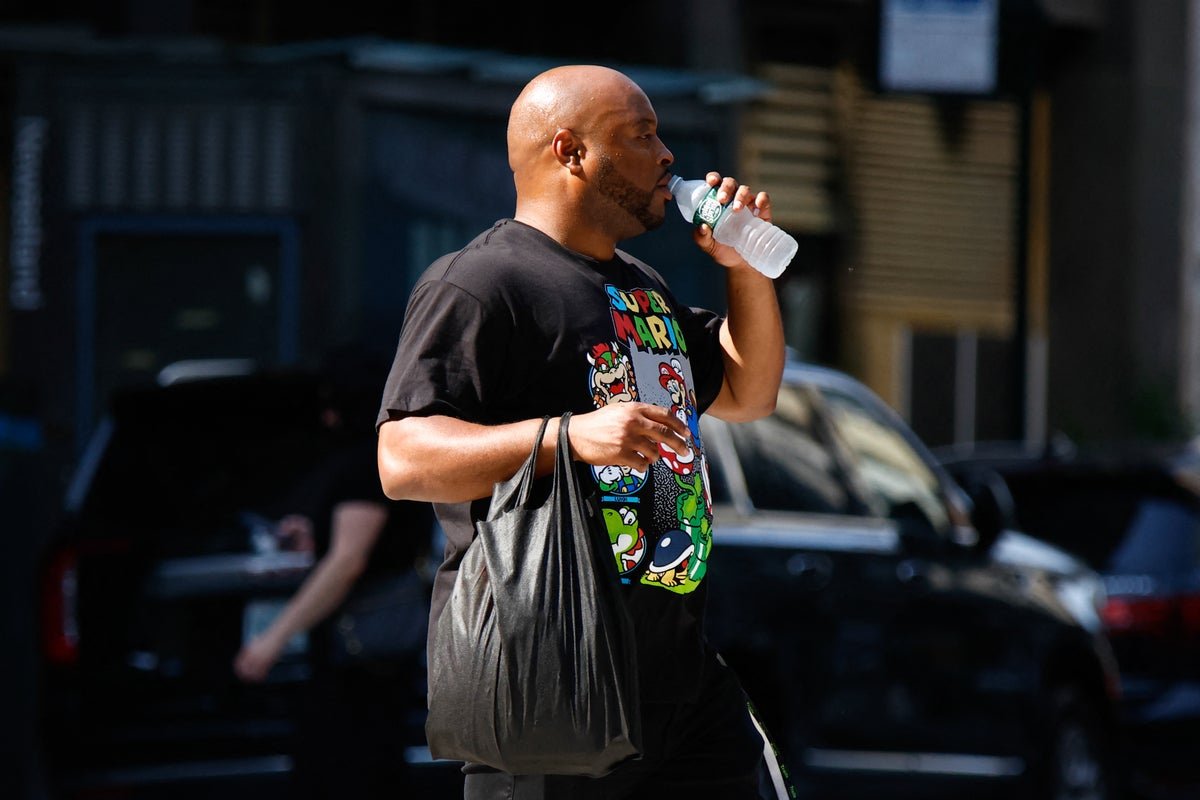Chat to any prospective parents and the chances are that they’ll happily explain exactly how they’re preparing for their new arrival. The colour of the nursery, the sleep plan they’re intending on following (until it all inevitably goes out of the window), the extortionate price of buggies – all these minutiae are up for discussion. It’s alternately charming and disorientating, seeing the friends with whom you sat on the school bus or snuck into clubs underage suddenly consumed by grown-up details.
But there is one subject that seems to have the power to make even the most forthcoming parents-to-be fall quiet. Ask them about the baby names that they’re considering, and it’s as if a drawbridge has come up. An apparently innocuous question tends to elicit only cautious responses. “Well, we’ve got a list, but we’re keeping them quiet for now,” they might say, with a meaningful glance at one another. Or perhaps they’ll outright admit that they’ve come up with the perfect choice – but you’ll have to wait and see exactly what that perfect choice is.
It’s a topic that Meghan Markle recently touched upon in an episode of her Confessions of a Female Founder podcast. “I will say this to every woman in the world or every person in the world who’s going to have a child,” she said. “If you have an idea about what you are going to name that baby, you keep it so close to your heart, until that baby is born and it’s named. Don’t ask anyone’s opinion.”
For royals and us commoners alike, when it comes to naming a baby, pre-birth secrecy seems to have become an increasingly popular option. So why all the caginess? Might this cause friction if the family feels locked out? Or should we actually be rethinking why we feel entitled to ask about something so personal in the first place?
First, it’s worth unpicking what’s in a name. “We attach huge importance to baby names because they carry identity, meaning and emotion,” says psychotherapist Naomi Magnus, founder of North London Therapy Practice. “Our name is usually the first thing people learn about us [and] can reflect culture, family history or aspirations, so choosing one feels like a big responsibility.” Parents, for better or worse, are essentially deciding on how their kid might be perceived over a lifetime. “It’s not just a name,” says Magnus. “It’s a story, a vibe, a lifetime of assumptions bundled into a few syllables.”
No pressure, then. What’s more, our feelings towards people that we’ve previously met, or even celebrities that we’ve formed sweeping opinions about, can colour our response to a particular name. You only need to ask teachers about how their experience with various pupils has shaped their naming likes and dislikes for a case in point. And if you haven’t fostered an irrational but decades-long dislike of, let’s say, the name Harriet because a member of that particular tribe nicked your best friend in year 3, then you are a better person than I am.

“Everyone has associations with names, from schoolmates to celebrities, and those opinions can spill out, even unintentionally,” says Emiliana Hall, a doula and founder of The Mindful Birth Group. And if parents end up developing “a strong emotional connection to a name, only to be met with a raised eyebrow or ‘Oh, I used to know a [name] and they were awful”, this can “quickly take the shine off something they’ve put thought and love into”.
One colleague tells me that she found this out the hard way while expecting her second child. She and her husband thought that they’d share some of their choices with their family this time around, but “it was a huge mistake. Everyone therefore thought it was their right to comment or say they hated any name we suggested.” Eventually, she says, they ended up taking almost a month to decide on one – and, even a few years on, some of the family still don’t love the name.
No wonder, then, that parents-to-be are wary of potential judgement or snide comments. When I ask a pregnant friend about why she’s staying quiet until the baby arrives, she admits that she just doesn’t want to know if other people hate her preferred names. “I want it to be too late to change it!” she says.
When she puts the same question to her group chat of fellow expectant mothers, though, a handful of themes emerge. First is a sense of superstition that is entirely understandable during an often uncertain and stressful time. Some parents simply want to wait for the arrival of a healthy baby before they start making any details public, especially if they’ve previously dealt with the heartbreak of miscarriage and pregnancy loss. Others worry that their name won’t “suit” their child, that their kid just won’t look like the moniker they’ve so carefully selected, and then they’ll have to perform an about turn.
Name theft? It’s a genuine concern, especially if you’re opting for something particularly unusual
Most common of all, though, is the fear of having your perfect baby name poached by a friend or family member, especially if they’re pregnant too. Name theft? It’s a genuine concern, especially if you’re opting for something particularly unusual (you imagine that it’d be hard to get particularly irate about someone pinching something relatively straightforward like James or John, say).
Inevitably, it’s territory that has been covered in that catalogue of thirtysomething experiences; in season one of Sex and the City, the group’s pregnant friend Laney reveals that she’s going to call her baby girl “Shayla”, a name that Charlotte (Kristin Davis) had told her pals that she’d always wanted to use for a daughter. When Charlotte yells that the other woman “stole her baby name”, Samantha (Kim Cattrall) instantly struts in, calls Laney a bitch and marches Charlotte out of the party in protest.
It’s a scene that frames robbing someone’s name choice as an act of betrayal (albeit in a very camp way). And it’s not just the stuff of fiction. One mum-to-be reveals that she “stupidly” shared her favourites with a sister-in-law years before having children – only for said sister-in-law to claim this was her favourite, too. When she eventually became pregnant, the sister-in-law brought it up again, telling her: “As long as you don’t use the name.” Another mother admits that she’s previously had people in her inner circle use her baby name choices… for their pets. Many of us start mulling over the names we like from an early age; I remember taking a precocious interest in the naming book that my parents bought while expecting my younger siblings. Over time, those choices might become weighted with significance, so it’s no wonder that having them “stolen” might be painful.
Hall has seen this situation play out many times in her work as a doula (albeit with names being nicked for human babies, rather than fur ones). “Understandably, it can be quite upsetting, especially if it’s a name with emotional or cultural significance,” she says. “While no one has ownership over a name, it’s the feeling of not being heard or respected that often stings. It can create tension, particularly if it’s brushed off without acknowledgement.”

Avoiding a potential theft, though, means staying firm in the face of constant questioning from family members. This can be particularly difficult when you’re grappling with a jumble of cultural expectations about pregnancy and parenthood. Lila, 34, tells me that in Spain, where her husband hails from, it’s much more common to “announce the sex of the baby with their name” before the birth; there’s also “a huge expectation from families to include family names”.
Choosing to keep their baby’s name a secret, then, was more difficult, as it just wasn’t the done thing. But, she explains, the couple wanted “an element of surprise for everyone” and to ensure that they “had something for just us”. During pregnancy, she adds, “often family, friends and society really do share your pregnancy and feel very entitled to personal information”, including details that they wouldn’t normally pry into: “People ask about your weight or [other] random questions.” And so for her, “This kept something for us, something intimate.”
Keeping the baby name private can feel like reclaiming a little intimacy
Naomi Magnus, psychotherapist
Psychotherapist Magnus agrees that staying quiet can be a way to “preserve a bit of magic”, and “to stay in control during an emotional time” when parents (especially mothers) are often being bombarded by judgement. “Pregnant women are often asked for ‘bump updates’ and given unsolicited advice, so keeping the baby name private can feel like reclaiming a little intimacy,” she says. “It’s something just for the parents, a secret to savour before everything becomes everyone’s business.”
At a time when boundaries “are constantly tested”, she adds, “holding this one thing close can feel grounding and special. It’s less about secrecy, more about preserving a moment that’s truly theirs”.
Of course, not everyone is fussed about keeping their baby’s name under wraps. Some feel like their choice being public early on helps them feel an even greater bond with their unborn child; others want to share the news with family if they’ve decided to name the little one in tribute (it also gives others a head start on buying any personalised baby bits and pieces).
Hall adds that this can also “help them test how the name lands”. Indeed, one of the mums in the aforementioned group chat takes a very unique approach: sharing some of her potential choices with her colleagues and asking them to think about any playground insults that they might inspire, especially in conjunction with the baby’s surname. You’ve got to admire her forward thinking.
Essentially, Hall adds, as with all parenting decisions, “There’s no one right way, just what feels right for [you].” So next time a prospective parent shuts down your well-meaning questions, don’t take offence. As Hall puts it, “It’s usually less about being mysterious, and more about protecting something deeply personal.”
#parents #secretive #baby #choices



